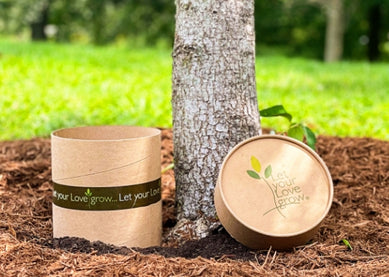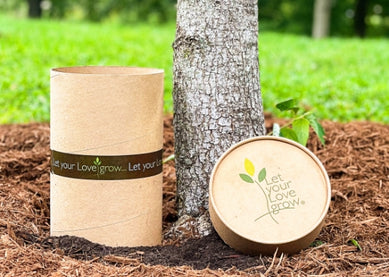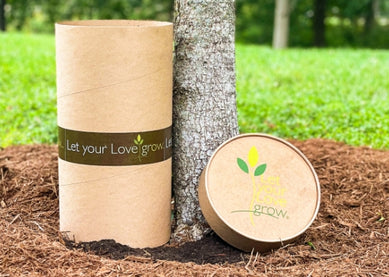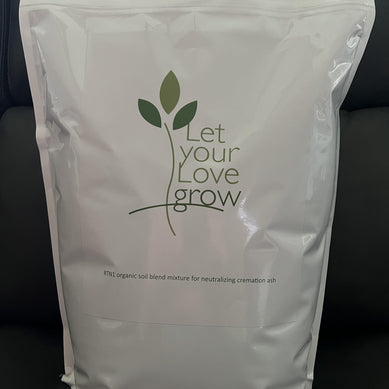Finding Solace: How Memorial Gardens Help Ease Grief and Stress
When a loved one passes, many survivors find comfort in spending time in a place where they can feel their loved one’s presence. For some, that place might be the cemetery where their loved one lies. For others, it might be a place beloved by the departed, perhaps a golf course or hiking trail.
However, you might be interested in creating a memorial space for your loved one that is a bit closer to home, like your own personal garden. Memorial gardens can be beautiful, peaceful spaces that pay tribute to the life of a dear loved one, and they offer many benefits to those struggling with their grief.
Advantages of Memorial Gardens
Allowing Reflection and Solace
Everyone experiences grief differently, but grief is almost always an overwhelming experience. Unfortunately, the modern world is not always welcoming to people in the midst of grief, which can lead many to suppress their thoughts and emotions, preventing true healing and closure. If you want to process your grief wholly and healthily, you may need to create a space in which you can do that — perhaps by planting a memorial garden.
Unlike cemeteries or more public memorial spaces, your private memorial garden gives you a close, personal space to explore your grief. Here, you can reflect on your memories of your loved one, give your emotions full control, and otherwise achieve clarity and calm as you move through your grief in your own way.
Healing Through Nature
Various studies have found that time spent in nature is essential for human health and well-being. Simply being outside can lower blood pressure, release muscle tension, and reduce levels of stress hormones, all of which can be beneficial during the grief process. Prolonged periods of stress can cause heart pain and other ailments, so anything you can do to get yourself outdoors while you grieve could help you survive and thrive.
There are plenty of ways you can engage with nature with your memorial garden. The labor of creating and maintaining your garden requires you to move, and physical exercise is good when your mental health is not at its strongest. You might stroll around your garden, or you might sit and breathe amongst the plants. Simply being in nature might help ground you and connect you to the rest of the world during your period of grief.
Creating a Community
Whether you create your garden in a private space on your property or work with your broader community to place a memorial garden in a public space, your garden can become a center for communal grief support. You might welcome others who knew your loved one in life to visit, help work on the garden, reminisce, and otherwise endure grief alongside you.
If you appreciate community support during the grieving process, you might consider hosting various types of grief-related events. Grief support groups, also called bereavement groups, allow people who have experienced similar losses to gather, commiserate, and work toward healing together. You might also consider offering access to grief workshops at your garden, where an expert in grief can teach the bereaved how to work through grief in healthy ways.
Tips for Designing Your Memorial Garden
A memorial garden should be as special as the person who inspired it and as unique as your personal experience of grief. Every element of your memorial garden should serve a purpose, perhaps in reminding you of your loved one or helping support your needs as you heal from your loss.
If you are struggling to begin the process of designing your memorial garden, you might benefit from a few simple tips:
Incorporate meaningful symbols. Add elements that remind you of your loved one, such as their favorite flowers or meaningful objects like a memorial plaque or bench. These personal touches create a space for reflection and connection.
Create areas for quiet reflection. Include spaces for solitude, like a cozy bench or a shaded corner. Water features or soft wind chimes can add calming sounds, enhancing the garden's peaceful atmosphere. Many different types of tranquil outdoor spaces make a big impact, and you should put your interests and needs first.
Engage the senses. Incorporate fragrant plants like lavender, calming colors like soft blues and greens, and textured pathways. Engaging the senses in your garden design helps immerse you in the present moment and can bring comfort during difficult times.
Plant cremation ashes thoughtfully. Honor your loved one by mixing some of their cremation ashes into the soil. However, since ashes can harm plants due to high pH and sodium levels, it's important to mix them with soil properly.
Choose plants for renewal. Opt for plants that symbolize life and renewal, such as perennials or evergreens. Selecting flowers that bloom during meaningful times can offer reminders of your loved one’s lasting impact.
A memorial garden can be a beautiful, peaceful place full of life. They can remind you of the life cycle and nature’s wonder. While grief never truly goes away, your memorial garden can continue to provide you with the support you need as long as you need it.










